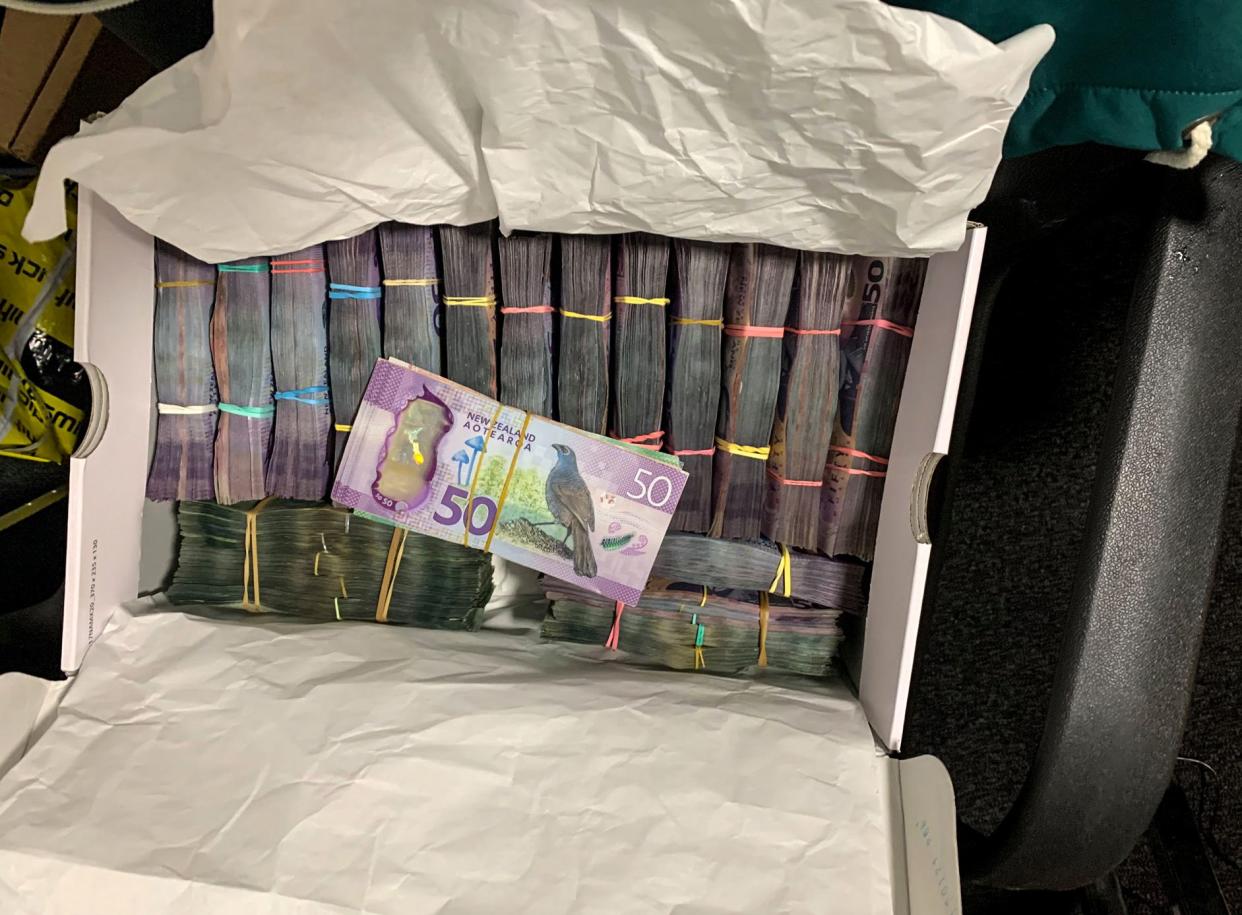FBI-built encrypted messaging app dupes criminal gangs, nets 800 arrests in 16 nations
Hundreds of international criminals were duped into using an encrypted messaging app secretly controlled by the FBI, exposing their drug smuggling, money laundering and even planned hits to a sting operation, officials said Tuesday.
Members of the unsuspecting syndicates were tracked over an estimated 12,000 “Anom” devices sold as “next-generation” global messaging platforms specifically hardened against any snooping by law enforcement.
The sting operation, called operation Trojan Shield, led to more than 800 arrests spanning 16 countries, officials with the U.S. Department of Justice, the U.S. Drug Enforcement Administration and the European Union police agency Europol announced at a press conference in The Hague, Netherlands.

Altogether, the devices have infiltrated an estimated 300 criminal syndicates operating in more than 100 countries, including Italian organized crime, so-called “outlaw motorcycle gangs” and various international drug trafficking organizations, according to court records.
Seizures in the sting so far have included 250 firearms, 55 luxury cars, eight tons of cocaine, 22 tons of marijuana, two tons of methamphetamine/amphetamine and more than $48 million in various worldwide currencies, officials said.
The operation got its start when the CEO of a Canada-based communications company called Phantom Secure pleaded guilty in 2018 to a federal indictment in San Diego charging he aided and abetted a cocaine smuggling operation. The CEO was sentenced to nine years in prison, leaving an opening in the market for another vendor to fill the void.

FBI agents managed to flip a “confidential human source” who previously distributed both the Phantom Secure and another device known as the Sky Global4 to transnational criminal organizations, officials said.
The source had been developing the “next generation” of encrypted communications products, dubbed “Anom,” and agreed to work with the FBI in exchange for a possibly reduced sentence as well as $120,000 paid by the FBI for services and $59,508 for expenses related to living and travel expenses, according to a federal search warrant unsealed Tuesday.
“The FBI opened a new covert investigation, Operation Trojan Shield, which centered on exploiting Anom by inserting it into criminal networks and working with international partners, including the Australian Federal Police, to monitor the communications,” the affidavit states.

The source “built a master key into the existing encryption system” that surreptitiously attaches to each message and enables law enforcement to decrypt and store messages as they’re transmitted, the paperwork reveals.
As recently as last month, a criminal organization used Anom devices to orchestrate a shipment of cocaine from Costa Rica to Spain using “hollowed out pineapples,” the affidavit alleges.
The suspected shipment arrived at the Port of Algeciras, Spain, on May 12, and a search by Spanish authorities “located approximately 1595 kilograms of cocaine,” the filing states.
The top five countries where Anom devices are currently used are Germany, the Netherlands, Spain, Australia and Serbia, the affidavit reveals.
A top Swedish official said the “valuable information” garnered through the FBI sting allowed the country to arrest “a significant number of leading actors within the violent crime and drug networks in Sweden.”
“We highly appreciate this type of cooperation between police organizations,” Linda H Staaf, the head of Sweden’s national criminal intelligence unit, said in a video statement.
“(This) enabled us to prevent murders. It led to the seizure of drugs that led to the seizure of weapons. And it helped prevent a number of crimes,” Calvin Shivers, assistant director of the FBI’s Criminal Investigative Division, said at the press conference Tuesday.
“There was a void that was created by a lack of these encrypted platforms,” Shivers said. “So that created an opportunity for collaboration with our international partners, to not only develop the specific tool but also to develop the process of gathering the intelligence and disseminating the intelligence.”
